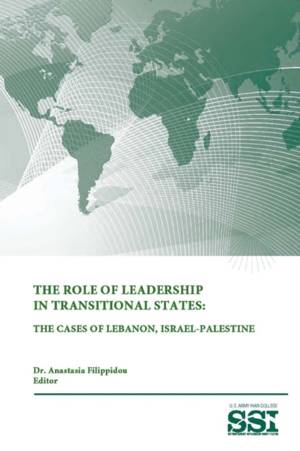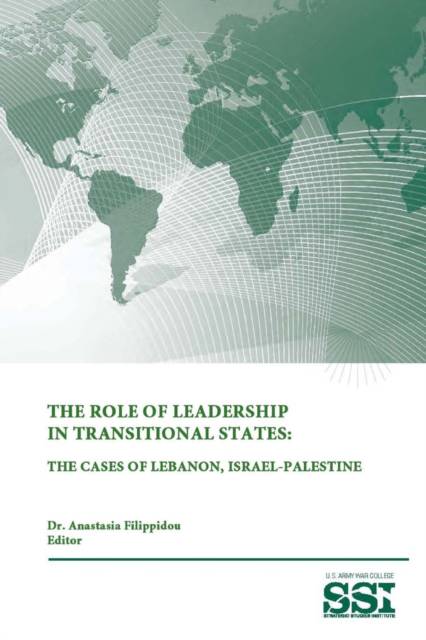
Door een staking bij bpost kan je online bestelling op dit moment iets langer onderweg zijn dan voorzien. Dringend iets nodig? Onze winkels ontvangen jou met open armen!
- Afhalen na 1 uur in een winkel met voorraad
- Gratis thuislevering in België vanaf € 30
- Ruim aanbod met 7 miljoen producten
Door een staking bij bpost kan je online bestelling op dit moment iets langer onderweg zijn dan voorzien. Dringend iets nodig? Onze winkels ontvangen jou met open armen!
- Afhalen na 1 uur in een winkel met voorraad
- Gratis thuislevering in België vanaf € 30
- Ruim aanbod met 7 miljoen producten
Zoeken
The Role of Leadership In Transitional States
The Cases Of Lebanon, Israel-Palestine
Strategic Studies Institute, U S Army War College, Anastasia Filippidou
Paperback | Engels
€ 29,45
+ 58 punten
Omschrijving
The United States plays a significant role in the Middle East. When dealing with the region, often the dilemma is: should there be a strong or weak regional leadership in order to facilitate a transitional phase? However, this decision is contextual, and a state must know what is its own foreign policy. To promote its national interests in the long term, the United States might have to prioritize the local interests and almost altruistically help the regions overcome their internal divisions and problems. In this book, Dr. Anastasia Filippidou reviews the main leadership theories in order to set the foundations for analysis of asymmetric leadership in transitional processes. The report also examines the different leadership types and highlights that, with the exception possibly of toxic leadership, it is difficult, if not impossible, to determine that a specific type is better than another in every situation.
Specificaties
Betrokkenen
- Auteur(s):
- Uitgeverij:
Inhoud
- Aantal bladzijden:
- 208
- Taal:
- Engels
Eigenschappen
- Productcode (EAN):
- 9781312846531
- Verschijningsdatum:
- 18/01/2015
- Uitvoering:
- Paperback
- Formaat:
- Trade paperback (VS)
- Afmetingen:
- 152 mm x 229 mm
- Gewicht:
- 312 g

Alleen bij Standaard Boekhandel
+ 58 punten op je klantenkaart van Standaard Boekhandel
Beoordelingen
We publiceren alleen reviews die voldoen aan de voorwaarden voor reviews. Bekijk onze voorwaarden voor reviews.











